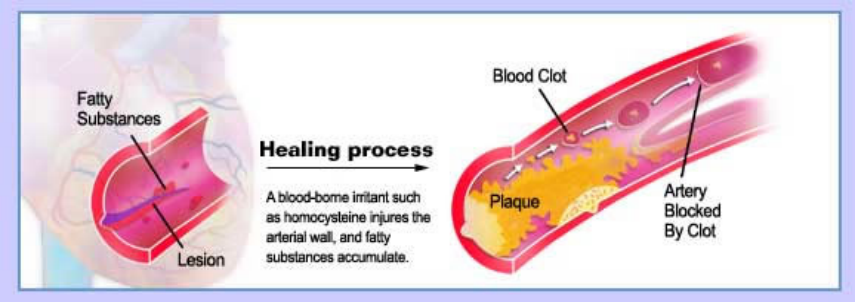Introduction
Homocysteine is considered to be an independent risk factor for atherosclerosis and cardiovascular and cerebrovascular diseases. Once arteriosclerosis occurs, it occurs in the blood vessels of the heart, and it will manifest as coronary atherosclerosis. In severe cases, it will manifest as coronary atherosclerotic heart disease, that is, coronary heart disease, which can cause angina or myocardial infarction. If the cerebral arteries are sclerotic, it can be manifested as cerebral infarction, hypertension, or cerebral ischemia or hypoxia. Other tissues, including renal arteries, can also exhibit arteriosclerosis.
|

Damage and destruction of blood vessels: under the action of Hcy,
plaques are formed on the damaged blood vessel wall, which promotes atherosclerosis
|
Homocysteine, often shortened to HCY, is a thiol containing amino acid produced by the intracellular demethylation of methionine. Excess HCY in the bloodstream may cause injuries to arterial vessels due to its irritant nature and result in inflammation and plaque formation, which may eventually cause a blockage of blood flow to the heart.
Advantage
✔ Equipped with special dropper consumables, the operation is easier and more suitable for clinical use
Clinical significance
✔ Evaluate the degree of risk of cardiovascular and cerebrovascular diseases and stroke
✔ An important reference index for neurological diseases such as Alzheimer's disease and Parkinson's disease
✔ Independent indicators for assessing health
Application
ICU, CCU, Respiratory Medicine, Emergency Department, Cardiology, Emergency vehicle, Nursing home, Ambulance